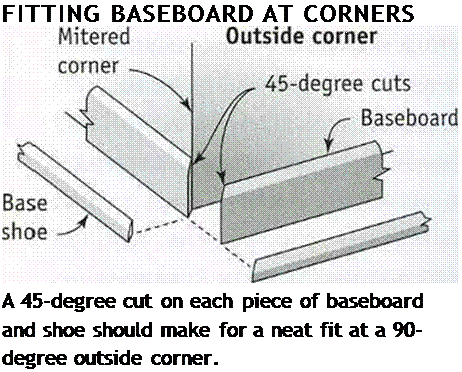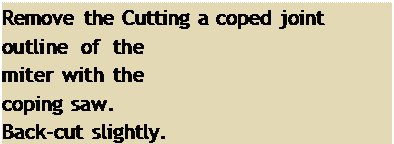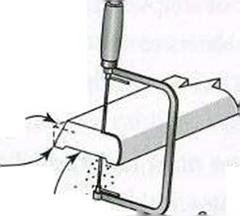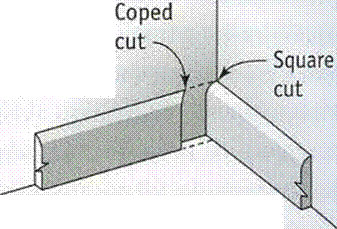Techniaues CUTTING A COPED JOINT
IF YOU’RE INSTALLING BASEBOARD TRIM that


![]()


![]()

![]()


has a rectangular profile, butt one board into another at an inside corner. For baseboard trim that has a shaped profile, it’s customary to make inside corners using coped joints. Coped joints can also be used on inside corners when installing chair rail, base shoe trim, and crown molding.
Start by setting a piece of trim upright in the chopsaw and make a 45-degree cut so you can see the face grain of the wood. The long point of the miter cut is toward the back of the material. Then, using a coping saw (or a small jigsaw) fitted with a fine-tooth blade, carefully cut along the outline of the exposed end grain. Tip the saw back a few degrees to give the wood a slight back-cut. This will allow the leading edge of the coped cut to fit tightly against the previously installed baseboard, creating a tight-fitting joint. Use scraps of trim to practice cutting coped joints until you can do them perfectly.
makes it harder for dust to collect on the top. Baseboards still cover the joint between the drywall and the floor and keep the wall from getting banged by a vacuum cleaner. Order long stock from the supplier so you can eliminate joints on most walls.






Leave a reply